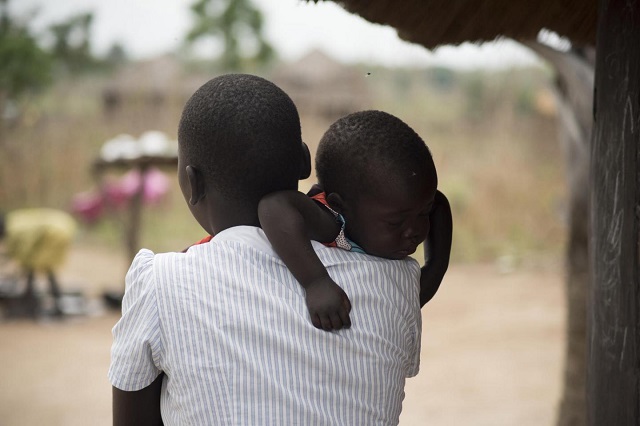
Kitgum, Uganda | THE INDEPENDENT | Parents and guardians in Acholi region are responsible for the high number of teenage pregnancies according to a section of cultural leaders. They particularly accuse parents and guardians of failure to monitor their children’s lifestyles.
Cases of teenage pregnancies have skyrocketed in the region ever since the government closed educational institutions as part of the COVID-19 containment measures. For instance, a recent report released by Kitgum District Probation Office indicates 4,767 young girls between the ages of 10-19 got pregnant in the last two and half years.
While in the neighbouring Pader district, 582 girls between 15 and 19 years have been impregnated since the beginning of this year. Poppy Paul Arop, the Pagen Clan Chief who also doubles as chairperson of all clan Chiefs in East Acholi says that parents have the responsibility to liaise with the relevant authorities in their community to stem the problem of teenage pregnancies.
He blamed parents for their failure to ensure that their daughters dress appropriately, saying it is now a common sight seeing young girls donning seductive dresses, which exposes them to abuse by older men.
The Lamogi Clan Chief in Amuru district, Martin Otinga Otto Yai also reiterates that indecent dressing among young girls and boys has greatly contributed to teenage pregnancies in the region. He says that the minors wear indecently under the watchful eyes of their parents and urged them to act tough on their children to avoid further escalation of the vice.
Michael Ogweng, the senior Kitgum District Probation Office acknowledges that a breakdown in the ring of responsibility right from the family, the children, and various stakeholders in the community have fueled teenage pregnancies.
He says there is a need to empower the relevant stakeholders in the society to take responsibility in ensuring young girls and boys grow safely.
Ogweng notes that with the lockdown still in effect and schools closed, young girls are unable to get sex education from their parents since it’s considered a taboo in the tradition to talk about sex to children.
He says such young girls benefited from sex education from senior women teachers while at schools, adding that with no one to educate them on sex, they are bound to go astray, prompting the rising teenage pregnancy cases in the region.
Acholi Paramount Chief Rwot David Onen Acana II, says that there is seemingly reluctance among most parents in the region in taking proper care of the children. He says some of the parents had gotten used to the knowledge imparted by teachers while their children are at school, adding that ever since the closure of schools, they have also abandoned their responsibilities.
Rwot Acana early last month chaired an emergency meeting of the executive council of Acholi Chiefs in Kitgum district following the rising cases of teenage pregnancy. The meeting held at the Kitgum Resident District Commissioner’s boardroom in Kitgum municipality came up with a number of resolutions that will guide the cultural institution on among others curbing teenage pregnancy and early child marriage cases.
However, Rwot Acana in an interview with Uganda Radio Network said that the resolution will also focus on the rampant sale of land, charcoal production, and Balalo pastoralists but remained tight-lipped on their details.
Kitgum district also recorded 38 cases of child marriages between January and June this year from nine sub-counties, according to statistics from the Probation Department.
Labongo Amida and Lagoro sub-counties were identified as hot spots with seven cases respectively, the highest in the district. Others are Labongo Akwang sub-county, which recorded two cases, Labongo Layamo with four cases, Kitgum Matidi with six cases, and Mucwini with five cases.
*****
URN
 The Independent Uganda: You get the Truth we Pay the Price
The Independent Uganda: You get the Truth we Pay the Price



